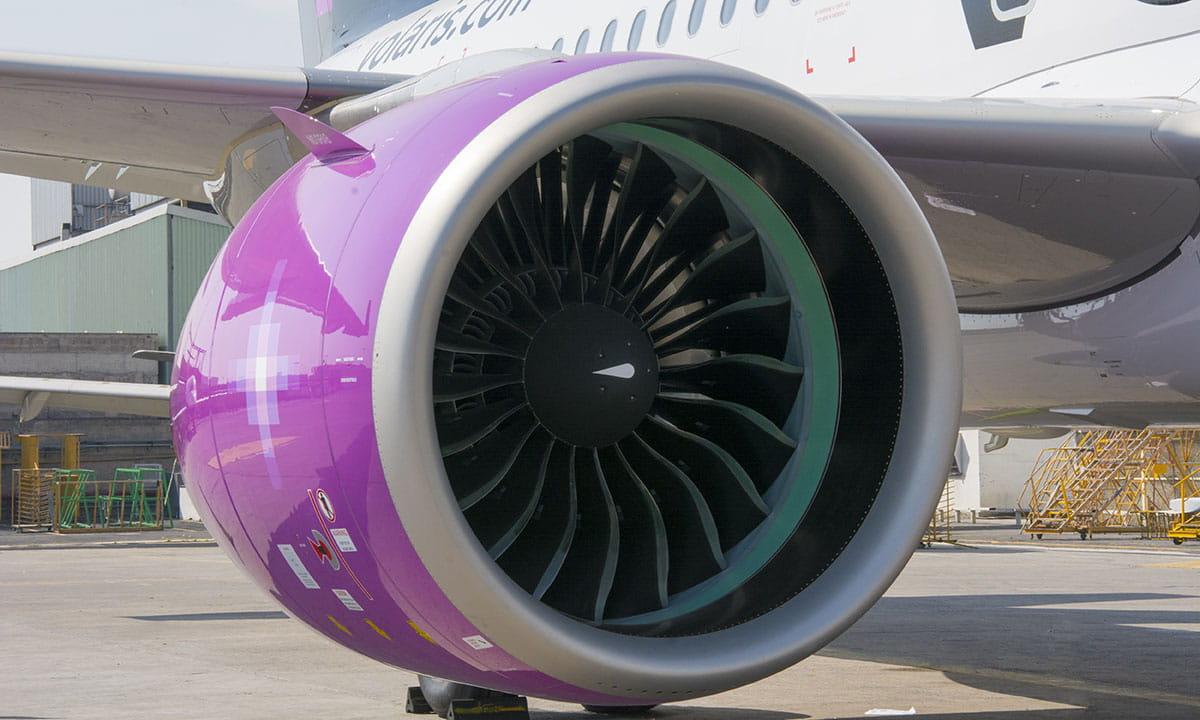
Volaris operates around 70 Airbus A320neo aircraft all operated by GTF engines.
Mexican carrier Volaris has become the latest to report a hit from Pratt & Whitney geared turbofan inspections.
The airline says capacity growth in calendar year 2023 will be 10% rather than 13%, while its earnings before interest, taxes, depreciation, amortization and restructuring margin is likely to be around 26%, rather than the 29-31% forecast midway through the year.
Revenue is likely to be at the lower end of the $3.2-3.4 billion previously forecast.
"The accelerated inspection program will include engines in our fleet," confirmed Volaris president and chief executive officer Enrique Beltranena. “The Volaris team is actively executing plans to mitigate the engine inspection impact, including a project to optimize our route network. We anticipate our growth rate will slow while we work through the required engine shop visits."
As of June 30, Volaris had 123 Airbus A320-family aircraft in its fleet, of which 70 were A320neo models. All the A320neo aircraft are powered by geared turbofan (GTF) engines.
In Europe another large GTF operator, Wizz Air, has flagged that its capacity could be 10% lower between October 2023 and March 2024 as a result of the engine inspections this year and into next year.
An issue with powdered metal means that almost 1,000 engines—those built between 2016-21—from the active fleet must be inspected, a process that will involve up to 700 additional shop visits.
Air New Zealand, which has 16 A320neo-family aircraft, said recently that it may need to make “significant” changes to its schedule over the coming months.
In the U.S., meanwhile, low-cost carrier Spirit Airlines has seen its ratings agency outlook worsen on the back of weaker margins and GTF engine issues.





